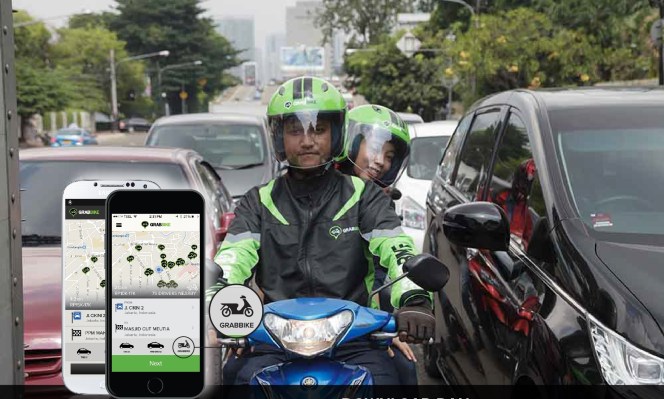GrabTaxi, the Uber-like ride-hailing company backed by SoftBank to the tune of $250 million, has expanded its GrabBike motorbike taxi on-demand service to Indonesia’s capital Jakarta — a city with a 10 million population and serious transportation challenges.
The company first began testing a motorbike taxi service in two cities in Vietnam last year, so this new launch is notable. GrabTaxi — which operates in 20 cities across six countries in Southeast Asia — hinted that it has plans for further expansions.
“We definitely plan to service a larger area but wanted to focus on a specific area for this beta,” Cheryl Goh, GrabTaxi’s VP of marketing told TechCrunch.
Motorbike taxis are not common in the West, but they are a much utilized transportation layer in much of Southeast Asia, not to mention Latin America, even parts of Africa and Eastern Europe. Beyond ferrying passengers across short locations faster than a taxi — a bike can weave through trafficked-clogged cities like Jakarta faster than four-wheeled vehicles — bike taxis are commonly used to courier items, pick up food and other such logistics-like services. That’s an area that GrabTaxi has admitted it may move into in the future — it is testing a bike courier service in Bangkok — which adds further interest to this trial.
GrabTaxi is not the first to pioneer two-wheeled taxi-app hailing in Jakarta, however. Rival Go Jek offers rides, deliveries and other services to the city’s residents. It launched iOS and Android apps last year.
The rise of motorbike taxi hailing services could bring problems, however, since it is an industry that has largely existed outside of the radar of government regulation in much of Southeast Asia. Uber experienced plenty of pain points bringing its unique brand of taxi services into Asia, and GrabTaxi faces the prospect of similar stand-offs and teething issues as it ramps up the GrabBike program.
Today’s news is another reminder that Uber’s regional rivals are focused on localizing their services to a higher degree than the U.S. firm. Ola in India, for example, has made a big push to cover India’s tier-3 and -4 cities; the company plans to be present in 200 cities and towns in India before the end of the year. In contrast, Uber currently serves 11 cities in India.
GrabTaxi, for its part, recently announced plans for a $100 million R&D center in Singapore to develop its service and lure talent from overseas. The company’s recently appointed Wei Zhu, a former US-based Facebook engineer who was on the team that created Facebook Connect, as CTO and nabbed executives from Palantir, Amazon and Salesforce to build out its management team.
